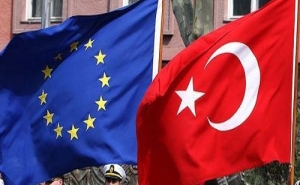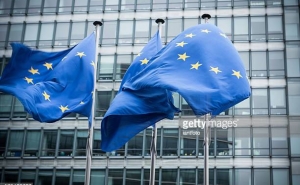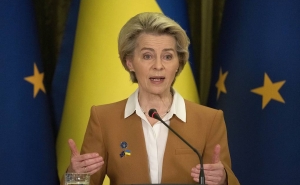Hardships for the UK and the EU: To Each His Own

The issue of the United Kingdom leaving the EU has become a matter of everyday discussions. Although PM Cameron and Germany's Chancellor Merkel seem not to lose any chance to secretly discuss some common matters, Merkel still leaves the issue of Brexit to the Union.
An idea recently expressed by Germany’s Chancellor provides everyone with some food for thought. Merkel declared that the EU could consider amending its treaties as the price for persuading Britain not to leave. She added that if everyone wants to find a solution, they’ll achieve it. But does everyone actually want to find a solution? The main opponents to treaty changes are France and Poland. Both of them have their own reasons. Being a funding member of the EU, starting from the Coal and steel community France will not accept any rapprochements from the UK, which has never considered itself a full member of the Union. As for Pols, they oppose as their diaspora will largely suffer from the changes proposed by Cameron.
It is actually the EU that should deal with the issue. On one hand it is true that the EU cannot decide for Britain on holding a referendum or opting for Brexit. But on the other hand there is another issue to be considered. While voting for changes of the Treaty the EU 28 will be directed by the system called Qualified majority voting (QMV), which has come into force for several areas, including EU policy areas as asylum, immigration, border checks, culture, tourism and sport since November 1, 2014.
Qualitative majority means from now on passing a new law needs a majority of the 28 EU Member States (14 plus one), as well 65% of the population of the EU as a whole. Under these new rules, Germany’s vote carries more weight than for example Portugal, as Germany has a larger population. Accordingly, if 15 Member States with small populations agree to a law, but they collectively represent less than 65% of the population of the EU, the law will not pass.
At the same time, the Lisbon Treaty still contains Article 50, concerning states’ membership withdrawal. The Article states that in accordance with the country’s constitutional requirements it may decide to withdraw its membership.
Actually this new system mostly explains Cameron’s Europe tour, where he was trying to convince the states with largest populations that his offer could be rational. But in most of the cases it did not correspond to individual interests of the countries.
Another important factor in this EU-UK case is Scotland, which in a way gives a hand to London and fosters the implementation of UK's desires. Today, it seems that Britain has got an unexpected "ally"- Scotland, which is continuously announcing that if the UK chooses to leave the EU, Scotland will chose to leave the UK. By this act Scotland in a way urges Brussels to make concessions towards London, otherwise the choice of Scotland to leave will lead to strengthening of extremism and separatism in Europe, as well as leave UK without Scotland: which will bring to unpredictable consequences.
However, it is in nobody’s interests to leave the EU and Cameron’s policy is "yet another time trying to get what they want and make the Union work their way". It’s just the same policy of many years: although then the mechanisms for achieving this result were different, but the aim is the same. The UK has always been a country with high standards, it has always considered itself "different" from the 27 and has maintained its membership on special terms for years now.
Other materials on this subject
- The European Union Has Decided to Abandon Russian Coal In the Summer Many countries have joined these sanctions, even if this necessarily implies economic costs for ourselves," he noted.
- Germany Faces Steep Recession if Russian Oil and Gas Halted, Bank Lobby Says "The situation would be even worse if imports or supplies of Russian oil and natural gas were to be halted. A significant recession in Germany would then be virtually unavoidable," Sewing told journalists.
- EU Leaders Agree on Joint Gas Purchases Last year, the European Commission proposed to the EU countries a system of joint purchases of strategic gas reserves as a way to provide a buffer against possible supply disruptions. Fears of supply disruptions...
- European Union Launches “Team Europe” Package to Support Partner Countries with More than €20 Billion: Reuters Most of the money is being reallocated from other, less urgent EU foreign aid schemes in the EU’s common budget, but Borrell said the European Investment Bank, the European Bank for Reconstruction and...
- The Guardian: EU Leaders Clash Over Economic Response to Coronavirus Crisis Meeting via a video link, the EU’s 27 leaders papered over deep divisions by agreeing that another fortnight was needed to discuss ambitious economic recovery plans. After a testy debate over "coronabonds",...
-
 17:08
17:08The regular session of the Anti-corruption Policy Council takes place in Jermuk
-
 15:05
15:05The Prime Minister sends congratulatory messages to the supreme leader of Iran and the President of Iran
-
 11:11
11:11Armenia sends earthquake aid to Turkey
-
 10:43
10:43Commemoration of the Pontiff St. Sahak Partev
-
 09:16
09:16Some roads are closed and difficult to pass in Armenia
-
 19:55
19:55Phone conversation of the Foreign Minister of Armenia with the U.S. Assistant Secretary of State for European and Eurasian Affairs
-
 18:30
18:30Prime Minister Pashinyan and President Khachaturyan meet
-
 18:20
18:20Ararat Mirzoyan with Co-Chairman of the OSCE Minsk Group of France Brice Roquefeuil
-
 17:01
17:01Humans could land on Mars within 10 years, Musk predicts
-
 16:45
16:45France, US urge 'immediate' end to Nagorno Karabakh blockade
-
 16:01
16:01Blockaded Nagorno Karabakh launches fundraiser to support quake-hit Syria
-
 15:59
15:59Earthquake death toll in Turkey rises to 18,342
-
 15:43
15:43Ararat Mirzoyan Held a Telephone Conversation with Sergey Lavrov
-
 15:06
15:06French president rules out fighter jet supplies to Ukraine in near future
-
 14:47
14:475 Day Weather Forecast in Armenia
-
 14:44
14:44President Vahagn Khachaturyan wrote a note in the book of condolences opened in the Embassy of Syria in Armenia
-
 14:20
14:20Azerbaijan’s provocations impede establishment of peace and stability – Armenian FM tells Russian Co-Chair of OSCE MG
-
 12:57
12:57France representation to OSCE: Paris calls on Azerbaijan to restore freedom of movement through Lachin corridor
-
 11:40
11:40Command of Kosovo forces highly appreciated preparation of Armenian peacekeepers
-
 10:16
10:16The United States withdrew from sanctions against Syria for six months the provision of assistance after the earthquake
day
week
month
Humidity: %
Wind: km/h









